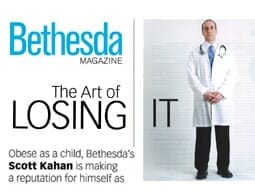By Robyn Osborn, PhD
The American Lung Association writes the following about smokers: “…each time you try [to quit smoking], you learn a little more about the quitter in you. You become a little wiser about what to do and not do the next time.” We can learn a lot from this perspective.
As someone who works in a multidisciplinary medical center dedicated to helping people manage weight through working towards wellness, I wish that more people would look at previous weight loss attempts with this same positivity. I wish that any effort at weight management was viewed as a learning experience that would bolster future efforts. Instead, when weight is regained (or never lost at all), these attempts are too often considered “failures.”
Many people who have struggled with weight have tried everything—we’ve done the cabbage soup diet, low-carb/no-carb plans, and sometimes we’ve tried even more worrisome behaviors like laxative use or vomiting. And many of us, in response to repeated “failures” on these various plans, get mired in self-blame and experience intense feelings of shame and humiliation about being a “failure.” For the last decade I have worked through both research and clinical practice to understand how this shame impacts future efforts to manage weight.
Perhaps the most important thing to realize is that people who struggle with weight are the very same people who run businesses, care for families, serve on community boards, and sometimes make our country’s policies, laws and regulations. They (we!) are not failures by any definition of the word. And unfortunately, if we believe that our weight struggles are evidence of poor self-control and lack of will-power, we actually reduce the likelihood of engaging in the very behaviors that can support healthy weight regulation. Why?
Shame depletes energy
Shame and negative self-talk deplete our energy. Energy is a finite resource and every drop of energy we expend on arguing with ourselves about what we should (or shouldn’t) eat, berating ourselves over our lack of self-control, or beating ourselves up over “failing” our latest diet plan, leaves us with less emotional capacity to engage in new health behaviors.
To better understand this concept, consider this parallel with working memory. If I am asked to memorize a 10-digit phone number and then, while rehearsing, I am told to recite the pledge of allegiance (a well-known and rote memory type of task), my working memory is overtaxed. Something gives. And no matter how much I want to do both tasks, I will struggle. Our energy for behavior change, much like our working memory, is a finite resource. The more of it we allocate to self-talk about failure and subsequent feelings of shame, the less we have for self-care behaviors that impact weight management.
Shame may also hinder our likelihood to access support. Weight management requires support from numerous disciplines (medical, psychological, nutrition, movement) as well as from loved ones, friends, families, and coworkers. Again, feelings of shame can prevent us from engaging these networks. Thinking things like, “I should lose weight before I go back to my doctor” is just one example. We can learn from the American Lung Association’s message and start considering our past weight management attempts, regardless of outcome, as experiences that teach us more about how to move forward than as evidence that we are doomed to repeat patterns of the past.









